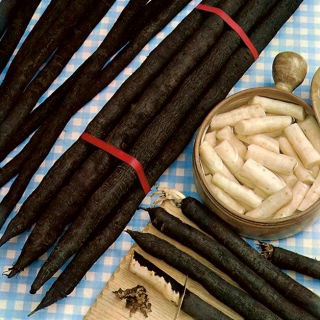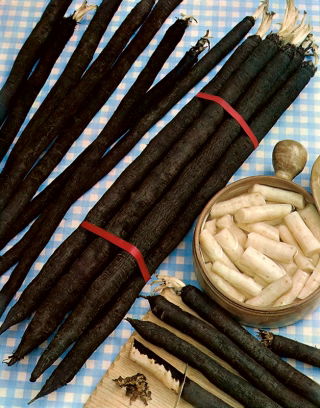- US Dollars ($)
- Euro (€)
- GB Pound (£)
- Chinese Yuan (元)
- Swedish krona (kr)
- Russian ruble (₽)
- Hong Kong dollar (HK$)
- Norwegian krone (kr)
- Indian rupee (₹)
- New Taiwan dollar (NT$)
- Danish krone (kr)
- Hungarian forint (Ft)
- Saudi riyal (SR)
- Bulgarian lev (лв)
- Czech koruna (Kč)
- Israeli shekel (₪)
- Indonesian rupiah (Rp)
- Japanese yen (¥)
- Korean won (₩)
- Malaysian ringgit (RM)
- Romanian leu (leu)
- Swiss franc (Fr.)
- Serbian dinar (din)
- Vietnamese đồng (₫)
- Ukrainian hryvnia (₴)
- Turkish lira (₺)
- Thai baht (฿)
- CAD Dollars ($)
- English
- German - Deutsch
- French - Français
- Spanish - Español
- Italian - Italiano
- Swedish - Svenska
- Russian - Русский
- Norwegian - Norsk
- Danish - Dansk
- Nederlands
- Estonian - Eesti keel
- Finnish - Suomalainen
- Hungarian - Magyar
- Latvian - Latviešu valoda
- Lithuanian - Lietuvių
- Portuguese - Português
- Chinese - 中文
- العربية - Arab-c
- Bulgarian - български
- Czech - Čeština
- Greek - Ελληνικά
- پارسی - Persian
- עברית - Abrit
- Croatian - Hrvatski
- Indonesian - Bahasa Indonesia
- Japan - 日本語
- Korean - 한국어
- Malay - Melayu
- Romanian - Română
- Slovak - Slovák
- Slovenian - Slovenščina
- Thai - ไทย
- Turkish - Türkçe
- Ukrainian - Українська
- Vietnamese - Tiếng Việt
- Categories
-
Seeds
-
Vegetable Seeds
-
Flower Seeds
-
- Ageratum, Flossflower seeds
- Alyssum seeds
- Amaranth Seeds
- Aquilegia, Columbine seeds
- Aster seeds
- Aubrieta Seeds
- Begonia seeds
- Bellis perennis, Daisy seeds
- Californian Poppy Seeds
- Campanula, Bellflower seeds
- Celosia, Cocksbomb seeds
- Centaurea, Cornflower seeds
- Chrysanthemum, Painted Daisy seeds
- Coleus seeds
- Convolvulus seeds
- Coreopsis seeds
- Cosmos seeds
-
- Datura seeds
- Dianthus, Carnation seeds
- Echinacea, Coneflower seeds
- Flower seed mixtures
- Forget me not seeds
- Foxglove seeds
- Gaillardia Seeds
- Gazania seeds
- Geranium, Pelargonium seeds
- Godetia seeds
- Gourd, Ornamental squash seeds
- Gypsophila, Baby's Breath seeds
- Hollyhock seeds
- Impatiens seeds
- Ipomoea, Morning glory seeds
- Calabash, Bottle Gourd seeds
- Larkspur, Delphinium seeds
-
- Limonium, Statice seeds
- Lobelia seeds
- Lupin, Lupine seeds
- Lychnis, Catchfly seeds
- Mallow Seeds
- Marigold, Tagetes seeds
- Milkweed Seeds
- Nasturtium seeds
- Nemesia seeds
- Nepeta, catmint seeds
- Nicotiana, Ornamental Tobacco seeds
- Nigella, Love in a mist seeds
- Pansy seeds
- Petunia and Surfinia seeds
- Phlox seeds
- Poppy seeds
- Primula, Primrose seeds
-
- Red Valerian, Centranthus Seeds
- Ricinus, Castor bean seeds
- Runner bean seeds
- Safflower seeds
- Salvia, Ornamental sage seeds
- Snapdragon Seeds
- Stock seeds
- Strawflower, Golden everlasting seeds
- Sunflower seeds
- Sweet pea seeds
- Tunbergia, Black-eyed Susan Vine seeds
- Verbascum, Mullein seeds
- Verbena seeds
- Veronica, Speedwell seeds
- Viola, Violet seeds
- Zinnia seeds
-
- Herb Seeds
- Sprouting Seeds
-
Flower Bulbs
-
Garden Equipment
-
At home
- Around home
-
Fertilizers
-
- All-purpose fertilizers
- Autumn and winter fertilizers
- Blueberry fertilizers
- Boxwood fertilizers
- Bulb plants' fertilizers
- Grass and lawn fertilizers
- Citrus plant fertilizers
- Compost
- Conifer fertilizers
- Dolomite and lime fertilizers
- Dry powder fertilizers
- Fertilizers for balcony and terrace plants
- Fertilizers for moss-infected lawns
- Fertilizers in pump sprayers
-
- Fertilizers in watering cans
- Fertilizers sticks
- Fertilizers with leaf shine
- Flowering plant fertilizers
- Fruit fertilizers
- Fruit tree fertilizers
- Garden plant fertilizers
- Gel fertilizers
- Geranium fertilizers
- Green plant fertilizers
- Herb fertilizers
- Home plant fertilizers
- Hydrangea fertilizers
- Lavender fertilizers
-
The 'Hoffmanns Schwarze Pfahl' black salsify is a perennial plant that is cultivated as a biennial. Its edible part is the 25-30 cm long rather thin root with a blunt end that tends to bifurcate. It is rather crunchy and brittle, covered with a dark, almost black skin. The inside of the root is milky white. A broken root excretes milky juice. The taste of black salsify reminds of asparagus. It can be served stewed, boiled and roasted. We recommend to eat it with bechamel or garlic sauce. It tastes great fried in butter and sprinkled with bread crumbs.
This vegetable has a high nutritional value. Even though it is rather unknown, it constitutes an excellent source of inulin - a carbohydrate with positive health effects. It can be used as a substitute for fat and sweeteners. Inulin has more medicinal properties. It supports the digestive system and has anti-inflammatory and detoxifying properties. The black salsify, also known as the serpent root or the viper's herb, is rich in B vitamins and such elements as potassium, phosphorus, magnesium, iron and many others. It also contains carotenoids and fructose.
Black salsify seeds should be sown directly into the ground between March and April. Place them in a moist soil 1 to 3 cm deep, in rows every 35-45 cm. Set the seedlings every 5-8 cm. They need about 2 weeks to germinate. Plan the harvest for September and October. This vegetable requires a carefully cultivated, soft soil. A sandy loam ground that is constantly moist brings good results. The place should be bright and sunny.
One package contains 3 grams of seeds. The growing instructions and the sow-by date were printed on the back of the package.
- Use: stewed, boiled or roasted
- Harvest time: September - October
- Vegetation form: perennial, grown as a biennial
- Site: bright, sunny; sandy-loam, carefully cultivated, soft soil
- Weight (in grams): 3 g
New


My account
Store
Customer information
Information

© -2025 Gardenseedsmarket.




